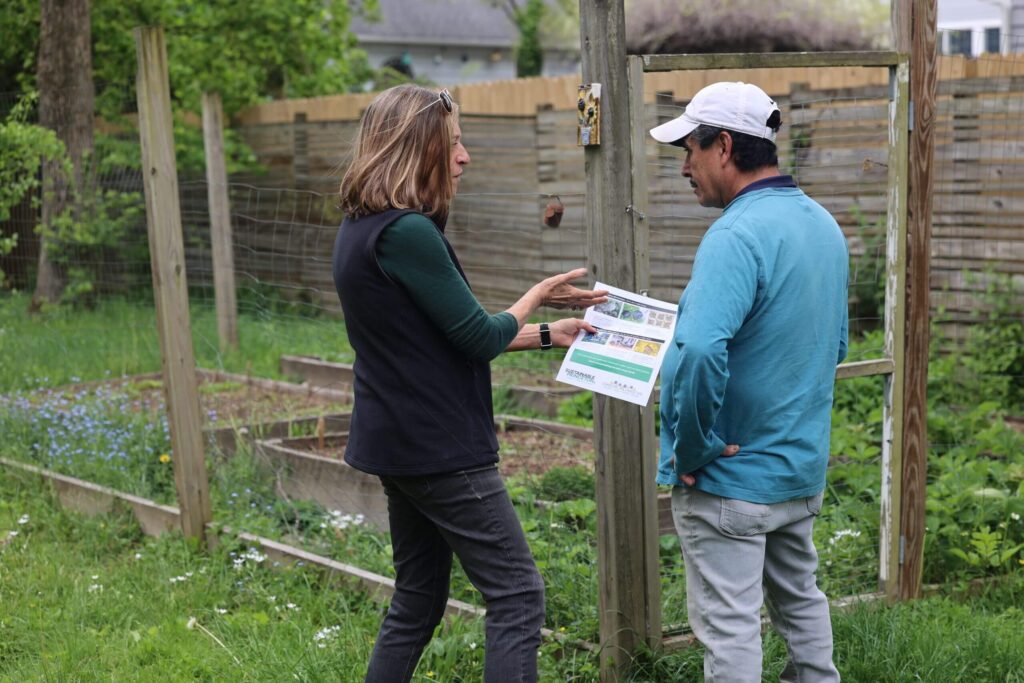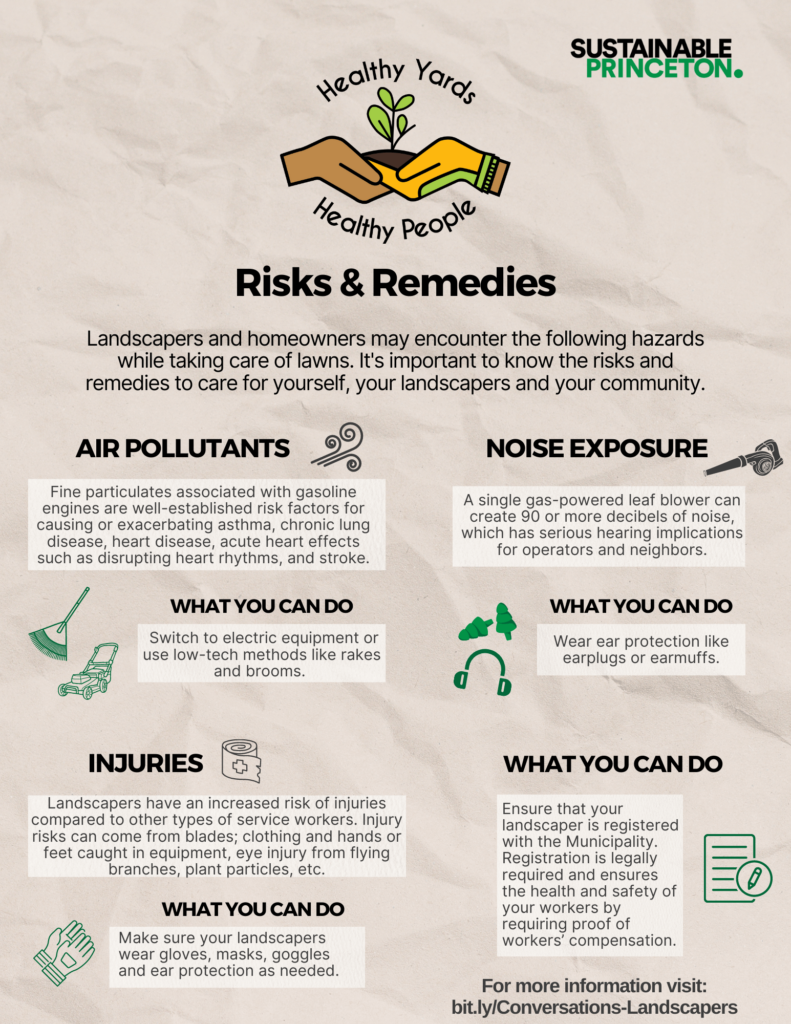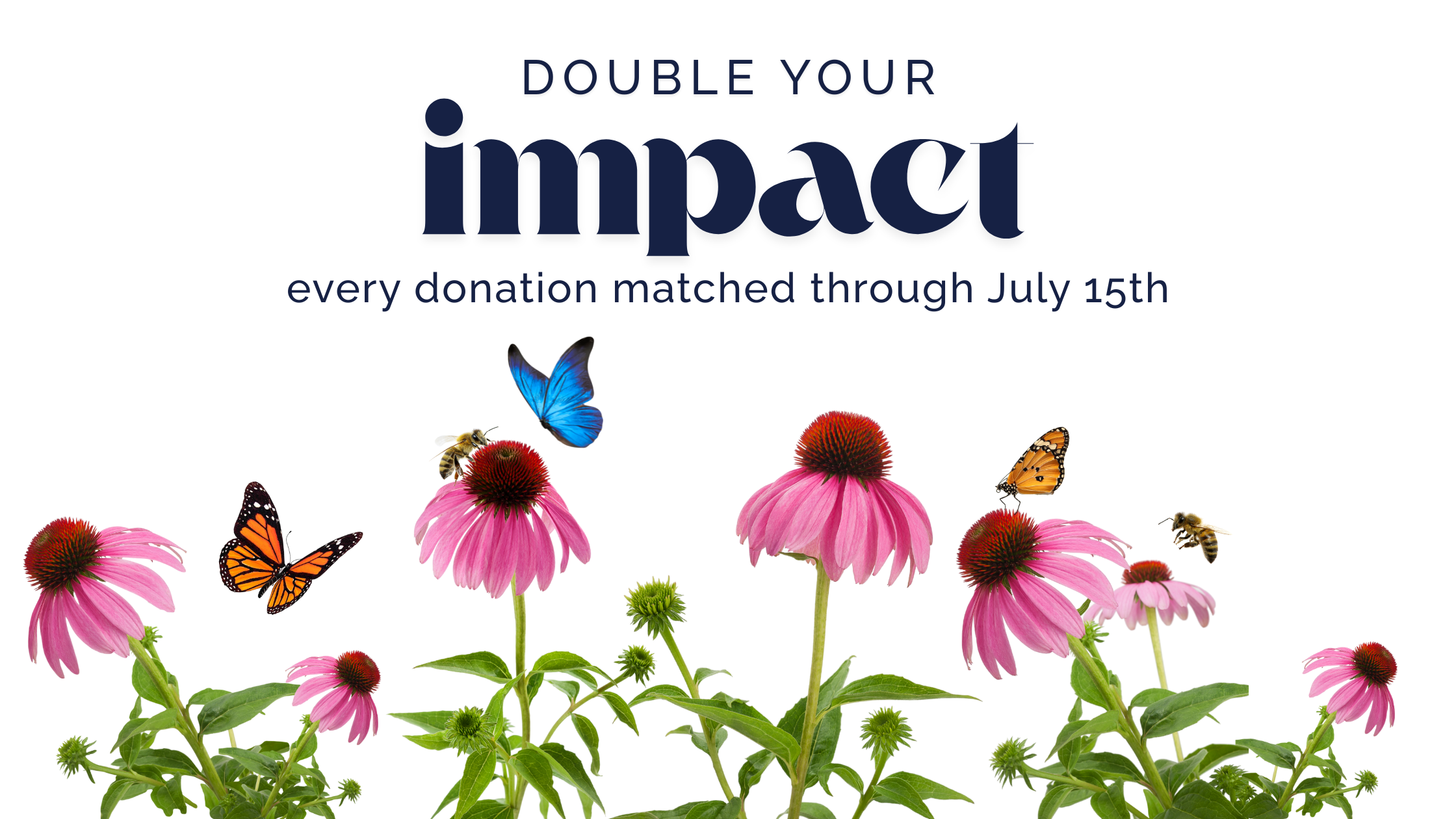No time to maintain your own yard? We get it. That’s why many residents hire a landscaper. Conversations with your landscaper are important to ensure your yard is as sustainable as possible and that the landscaping workers are treated fairly.
Landscapers should value sustainable services and the health and safety of their workers.
Hiring a landscaper? Here's what to look for.
- Are they certified or training sustainably? Review this list of certifications and trainings for landscapers.
- Are they registered? Every landscaper is required to be registered with the Municipality.
- Are they on our list of Sustainable Landscapers? This list of landscaping businesses offer a variety of sustainable landscaping services.
Having a conversation with your landscaper?
Use the following discussion points in conversations with your landscaper.
1. Plant native groundcover, plants, and trees. Replace part of your lawn with: a native meadow, low-maintenance groundcover, and/or flowerbeds, shrubs, and trees. Manicured lawns are high maintenance, require more fertilizer and increase stormwater runoff.
- Native plants filter water, attract pollinators and reduce the need for fertilizers. So, tell your landscaper that you want to plant native plants.
- Invasive plants outcompete native species and create “food deserts” for local birds. Be sure to speak with your landscaper about identifying and removing invasive species.
- Check Princeton’s Native Tree list and be sure to tell your landscaper to avoid trees and bushes on the Do Not Plant list.
2. Mulch leaves. Mulched leaves provide nutrients back into the soil, reduce the use of landfills and reduce blocked stormwater drains. Instead of piling leaves by the curb, ask your landscaper to create a compost pile, use them as mulch, or mulch them with a mower.
3. Build a leaf corral. Corrals prevent leaves from blowing around and the leaves provide nutrients to your lawn as they decompose. Leaf piles on the street create safety hazards for bikers, block stormwater drains and feed unhealthy algae blooms, so talk to your landscaper about installing one today.
Download the Toolbook for Sustainable Landscaping Conversations to find numerous other actions to consider with your landscaper.
Does your landscaper speak Spanish? Download our brochure, Spanish Phrases for Homeowners, to assist you in navigating these discussions with a Spanish-speaker.
Find resources and additional information about each of these actions on our Sustainable Landscaping webpage.
Preparing for the conversation.
Before you call, sort out your preferences. This is a conversation about what tasks should be done, and how. A few things you should consider in advance are:
- What tasks do your landscaper currently perform on your property?
- Are all of these tasks necessary?
- What is at least one sustainable switch that you want your landscaper to do?
Make sure that you are communicating with the owner of the company or someone with decision-making authority.
- Start with your key goal and open up a conversation about options.
- Explain why you want to make this change.
Acknowledge possible trade-offs and say what you could accept.
- For example, you may be fine with grass clippings being left on the walk until the wind blows them away, or with paying a small premium to help defray the upfront costs of purchasing battery-powered equipment.
- It’s important to find an alternative task for your landscaper to do – think of it as a sustainable switch.
End the conversation with a clear way forward.
- Ideally, you and your landscaper will agree to at least one change.
- Encourage your Landscaper to visit our webpage with tips for Landscapers

Healthy Yards = Healthy People.
Landscapers and homeowners may encounter the following hazards while taking care of lawns. It’s important to know the risks and remedies to care for yourself, your landscapers, and your community.
Air Pollutants
- Fine particulates associated with gasoline engines are well-established risk factors for causing or exacerbating asthma, chronic lung disease, heart disease, acute heart effects such as disrupting heart rhythms, and stroke.
- What You Can Do: Switch to electric equipment or use low-tech methods like rakes and brooms.
Noise Exposure
- A single gas-powered leaf blower can create 90 or more decibels of noise, which has serious hearing implications for operators and neighbors.
- What You Can Do: Ask your landscaper to wear ear protection like earplugs or earmuffs.
Injuries
- Landscapers have an increased risk of injuries compared to other types of service workers. Injury risks can come from blades, clothing and hands or feet caught in equipment, eye injury from flying branches, plant particles, etc.
- What You Can Do: Make sure your landscapers wear gloves, masks, and goggles as needed.
Ensure that your landscaper is registered with the Municipality. Registration is legally required and ensures the health and safety of your workers by requiring proof of workers’ compensation.





